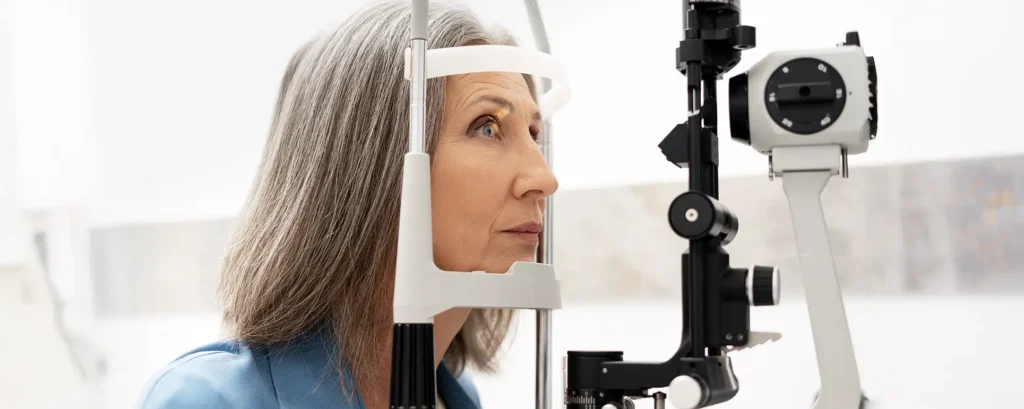If you’re considering cataract surgery, you might be wondering: does the time of year you have it done really matter? After all, it’s a fairly standard procedure — millions of people around the world have it every year. But there’s growing interest in whether factors like temperature, daylight, and seasonal illness trends could subtly affect how you heal or how comfortable you feel post-op.
In this article, we’ll walk you through the evidence, ask the tough questions, and help you make an informed decision about timing your surgery. From winter dryness to summer allergies, we’ll take a full-season look at what might impact your outcome — even in small but meaningful ways.
The Basics of Cataract Surgery and Recovery
Before diving into the seasons, let’s quickly go over what cataract surgery involves. The procedure is typically done under local anaesthetic, takes about 20 minutes, and involves replacing the clouded lens in your eye with a clear artificial intraocular lens (IOL).
Most people recover well within a few weeks, although some vision improvements continue for a month or more. However, during that healing time, your eye is particularly sensitive — to light, dryness, infection, and irritation. That’s where seasonal conditions might start to play a role.
Can Weather Affect Eye Surgery Recovery?

On the surface, it might seem unlikely that something as routine as the weather could influence the outcome of cataract surgery. But your eyes are remarkably sensitive organs, and the environment they’re exposed to during healing can have subtle effects.
Temperature, humidity, wind levels, and even UV exposure vary drastically between seasons, and each of these can influence:
- Tear film stability
- Risk of eye infections
- Inflammatory response
- Patient comfort and compliance
Some studies have begun exploring whether these external variables play a part in how smoothly the recovery goes — and whether certain seasons offer small but significant advantages.
Cataract Surgery in Spring: Fresh Starts or Pollen Problems?
Spring seems like a rejuvenating time to book in for surgery. The days get longer, the temperatures are mild, and nature is blooming. But that blooming comes with a cost: pollen.
Pros of Spring Cataract Surgery
- Milder temperatures reduce extremes in discomfort
- Daylight hours improve mood and compliance with eyedrops
- Spring sun is softer than summer’s glare
Potential Challenges
- High pollen counts can trigger allergic conjunctivitis
- Hay fever may make the eyes itchy and red, complicating recovery
- More time spent outdoors increases UV exposure risk
So, while spring is generally a good time weather-wise, anyone with seasonal allergies should be cautious. Eye rubbing or inflammation from pollen exposure can make healing more uncomfortable and increase risk of infection or delayed recovery.
Cataract Surgery in Summer: Light and Heat — A Double-Edged Sword
Summer is a peak time for elective procedures. People are off work, kids are out of school, and the idea of recovering in the sunshine feels appealing. But summer comes with its own risks.
Pros of Summer Cataract Surgery
- Longer daylight hours make post-op navigation safer
- Warmth may aid blood circulation and healing
- Easier logistics for taking time off and arranging help
Potential Challenges
- High UV exposure can irritate post-op eyes
- Hot, dry conditions may worsen dry eye symptoms
- Increased travel and public gatherings can raise infection exposure
It’s especially important in summer to wear quality UV-blocking sunglasses post-op and avoid dusty, dry environments. If you have pre-existing dry eye or plan to travel soon after surgery, summer might not be ideal.
Cataract Surgery in Autumn: The Underrated Sweet Spot?

Autumn doesn’t get as much attention as the big seasonal extremes, but it may actually offer the best balance of conditions. As temperatures cool and humidity levels stabilise, the eyes may find their most comfortable recovery setting.
Pros of Autumn Cataract Surgery
- Moderate temperatures and humidity
- Pollen levels drop significantly
- Less UV intensity than summer
Potential Challenges
- Shortening daylight hours can affect post-op vision in the evenings
- Seasonal cold viruses start circulating, which could lead to mild eye irritation
- Heating systems may begin drying out indoor air
Autumn tends to offer stable weather with fewer extremes. If you’re looking for minimal environmental stress on your recovering eyes, September and October could be strong choices.
Cataract Surgery in Winter: Low Light and Dry Air
Winter might seem like the least appealing time for surgery — it’s dark, cold, and flu season is in full swing. But it’s not all bad news.
Pros of Winter Cataract Surgery
- Fewer allergens in the air
- Easier to avoid bright light during early healing
- You’re less likely to sweat or be exposed to dusty outdoor air
Potential Challenges
- Central heating causes dry indoor air
- Cold winds irritate sensitive eyes
- Flu season raises the risk of post-op illness or delay
For many older adults, winter also means less time outdoors and a reduced social calendar, which could make it easier to rest and recover. But you’ll need to use lubricating drops more regularly and protect your eyes against sudden temperature changes.
Seasonal Affective Disorder and Motivation to Undergo Surgery
There’s also the psychological angle to consider. Cataracts gradually reduce your vision, and for many people, that leads to a dip in mood, confidence, and motivation. If you’re already prone to Seasonal Affective Disorder (SAD), having surgery in darker months might not feel like the right time — even if the medical conditions are fine.
Spring and summer tend to see higher rates of patient bookings, partly due to better mood, longer days, and the promise of improved vision in time for holidays or events. That psychological readiness can make a difference in how people perceive their results and stick to post-op routines
What Do the Studies Say?
The research into seasonality and cataract surgery outcomes is still emerging, but here’s what we know so far:
- A 2017 study published in Clinical Ophthalmology found no significant difference in visual acuity outcomes between summer and winter surgeries. However, there was a slightly higher incidence of dry eye symptoms post-op in summer patients.
- A 2021 paper in International Ophthalmology noted that environmental dryness and UV index might affect tear film stability and corneal sensitivity during recovery, particularly in summer and winter extremes.
- A 2019 European review of hospital admissions for post-op endophthalmitis (a rare infection) did not find a strong seasonal link, but did note a slightly increased rate during flu seasons — likely due to reduced immunity, not the weather itself.
So, while there’s no conclusive evidence saying “this season is best”, the data hints that autumn and spring may provide gentler environmental conditions for healing.
Considering Your Own Circumstances

At the end of the day, the best time to have cataract surgery depends as much on your lifestyle and health as on the calendar. Here are a few things to ask yourself:
- Do you suffer from seasonal allergies or dry eyes?
- Will you be travelling or recovering alone during certain months?
- Do you have more flexibility in spring and autumn to attend check-ups?
- Are you more likely to stay indoors during winter, reducing exposure risk?
If you’re unsure, talk to your ophthalmologist. They’ll consider your overall eye health, personal preferences, and seasonal factors to help you plan surgery at the most comfortable time for you.
What About the NHS Waiting List?
If you’re in the UK and going through the NHS for cataract surgery, seasonal choice may not be much of an option. You’ll likely be offered the next available date. But that doesn’t mean you can’t prepare based on the season.
If your surgery is scheduled for winter, stock up on lubricating eye drops and make sure you have warm sunglasses for wind protection. For summer, think about UV-blocking wraparound glasses and staying out of direct sun during peak hours.
Small Adjustments That Can Help — Whatever the Season
No matter when your cataract surgery is scheduled, you can make some small changes to smooth the recovery process. Here’s a quick checklist:
- Use humidifiers in dry seasons (winter or summer indoors)
- Avoid rubbing your eyes, especially during allergy seasons
- Wear sunglasses even in winter, to protect from glare and cold wind
- Stay hydrated, which supports tear film stability
- Stick to your eyedrop schedule, as compliance helps prevent complications
These little habits may seem minor, but they can collectively improve comfort and reduce the chances of post-op irritation.
FAQs
- Does temperature really affect cataract surgery recovery?
While temperature alone doesn’t influence the medical outcome of cataract surgery, it can affect how comfortable your eyes feel during recovery. Extreme heat or cold, especially when combined with dry air or wind, may worsen irritation or dryness in the healing eye. Patients often find it easier to manage post-op care in milder weather where the environment places less stress on the ocular surface. - Is it riskier to have cataract surgery in summer?
Summer cataract surgery isn’t inherently riskier, but hot temperatures and increased sun exposure can introduce challenges. Dry conditions and higher UV levels may aggravate sensitive post-op eyes, particularly if patients spend a lot of time outdoors. Wearing sunglasses, using artificial tears, and avoiding dusty or windy environments can help offset these seasonal drawbacks. - Can spring allergies make recovery harder?
Yes, for individuals who suffer from seasonal allergies, springtime can be problematic after cataract surgery. Pollen in the air can cause itchy, watery, or inflamed eyes, which may tempt patients to rub or touch the area—something that should be strictly avoided during recovery. Managing allergies with antihistamine drops (under medical guidance) and staying indoors during high-pollen days can support smoother healing. - Is winter a bad time to have cataract surgery?
Winter isn’t a bad time for cataract surgery, but there are a few extra things to watch for. Cold air and central heating can dry out the eyes more easily, which might make post-op discomfort more noticeable. In addition, chilly winds and darker days could influence your ability to get around after surgery, so it’s worth planning transport and having eye protection ready for trips outside. - What month do most people have cataract surgery?
Spring and early summer tend to be popular times for cataract surgery, especially among private patients. These months offer longer daylight hours, more consistent weather, and easier access to post-op support without the interruptions of winter illnesses or end-of-year holidays. However, availability on the NHS or in busy clinics may limit flexibility, making planning in advance essential. - Will my recovery be slower in winter?
Recovery time in winter isn’t slower from a biological perspective, but certain environmental factors might make symptoms feel more noticeable. Dry indoor heating, less natural light, and exposure to cold winds can contribute to more irritation or dryness. That said, if you stay indoors and maintain your eye drop routine, winter recovery can be just as smooth as in any other season. - Do daylight hours matter after cataract surgery?
They can, especially when it comes to mobility and confidence in your early recovery days. With more daylight, patients often find it easier to manage outdoor errands, attend follow-up appointments, and administer eye drops on schedule. In darker months, tasks like reading labels or moving about safely at home might require more lighting and support, particularly for older patients. - Can I plan cataract surgery around my holiday travel?
Yes, and it’s highly recommended to avoid surgery immediately before any big trip. You’ll need time for follow-up visits and to monitor healing closely in the first few weeks. Flying too soon after surgery, especially long-haul, could increase your risk of dry eye or infection, so aim to schedule procedures well ahead of any planned travel, particularly in the busy summer period. - Are infection risks higher in certain seasons?
Seasonal infection risks don’t typically stem from the surgery itself but rather from broader trends like flu outbreaks or cold viruses in winter. If you fall ill during recovery, it can weaken your immune system slightly and affect healing. Keeping up with hygiene, avoiding crowded spaces when ill, and following your surgeon’s instructions will help keep infection risks low in any season. - What’s the safest season overall?
There’s no definitive “safest” season, but many eye surgeons suggest that early autumn strikes a good balance. By then, the intense summer sun has faded, allergy season is winding down, and the weather is generally stable without the indoor dryness of winter. For patients looking to avoid extremes, September and October may offer the most comfortable conditions for cataract recovery.
Final Thoughts: There’s No “Perfect” Season — Just the Right One for You
So, is there an ideal season for cataract surgery? Scientifically speaking, not really. No season guarantees a better outcome — modern cataract surgery is incredibly safe and effective all year round. But there are definitely environmental and lifestyle factors that can tip the scales in terms of post-op comfort and ease.
For many, the best time is when your schedule allows for proper rest, minimal travel, and easy access to care. If that happens to be spring or autumn — great. If it’s the dead of winter, don’t worry. With the right precautions, you’ll heal just as well.
And remember, if you’re based in London and considering surgery, the team at London Cataract Centre offers personalised advice, flexible scheduling, and world-class care year-round. We’re happy to help you plan your surgery — no matter what season you choose.
References
- Ayaki, M., Kawashima, M., Uchino, M., Tsubota, K. & Negishi, K. (2017) ‘Possible association between subtypes of dry eye disease and seasonal variation’, Clinical Ophthalmology, 11, pp. 1769–1775. doi: 10.2147/OPTH.S148650. Available at: https://pubmed.ncbi.nlm.nih.gov/29033539/ (Accessed: 8 July 2025).
- Dermer, H., Galor, A., Hackam, A.S., Mirsaeidi, M. & Kumar, N. (2018) ‘Impact of seasonal variation in meteorological conditions on dry eye severity’, Clinical Ophthalmology, 12, pp. 2471–2482. doi: 10.2147/OPTH.S181637. Available at: https://pubmed.ncbi.nlm.nih.gov/30555221/ (Accessed: 8 July 2025).
- Kim, J.W. et al. (2020) ‘Seasonal variation in acute post‑cataract surgery endophthalmitis in South Korea’, Journal of Cataract & Refractive Surgery, 46(6), pp. 853–859. doi: 10.1016/j.jcrs.2019.11.004. Available at: https://pubmed.ncbi.nlm.nih.gov/31856980/ (Accessed: 8 July 2025). The study found infection rates peaked in the hot, humid summer months
- Ayaki, M. et al. (2020) ‘Tear Break‑Up Time and Seasonal Variation in Intraocular Pressure in a Japanese Population’, Diagnostics, 10(2), art. 124. doi: 10.3390/diagnostics10020124. Available at: https://www.mdpi.com/2075-4418/10/2/124 (Accessed: 8 July 2025). The paper examines climate-linked changes in tear film stability over different seasons

